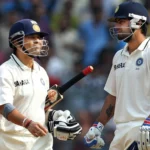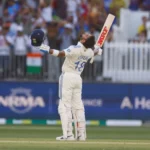Predicting cricket match outcomes is like solving a puzzle. You need to know much about the game, players, and stats. Many cricket fans want to get better at this, so they’re always looking for ways to improve.
To do this, you study player numbers, how teams work together, the condition of the playing field, and even the weather. This topic will show you different tricks and tips to guess who will win cricket matches better. Whether you’re a big cricket fan or just starting, these ideas will help you make smarter predictions.
If you want to amp up your match prediction skills and use a cricket prediction app earn money, follow these experts’ tips.
Table of Contents
Top Cricket Match Result Prediction Skills
1. Team Form Assessment
Assessing the form of competing teams is paramount. It involves scrutinizing their recent performance records, including wins, losses and draws. Examining individual player form, consistency, and contributions is equally crucial. Teams on winning streaks with key players in good shape are often better poised for success.
However, it’s essential to consider if these wins occurred under similar conditions or against similar opposition. Team form assessment provides valuable insights into a team’s confidence and momentum, serving as a foundational element in making accurate cricket match predictions.
2. Pitch and Weather Analysis as Match Conditions
In cricket match prediction, understanding the pitch and weather conditions is pivotal. Pitch conditions significantly impact the game, with varying pitches favoring batsmen or bowlers. For instance, dry, flat pitches favor high-scoring games, while green, seaming wickets assist fast bowlers.
Weather conditions can also swing the balance, affecting pitch behavior and strategies. Overcast skies can assist swing and seam bowlers, while a wet outfield can slow down scoring. Accurate prediction necessitates assessing how these factors will evolve throughout the match, as they play a pivotal role in determining team strategies and the outcome, making pitch and weather analysis indispensable for accurate predictions.
3. Head-To-Head Statistics
Examining historical head-to-head statistics between two cricket teams is fundamental to match prediction. These statistics provide valuable insights into team dynamics, revealing patterns and trends. This analysis should include factors like performance at the specific venue, recent encounters, and the balance of wins between the teams.
Teams with a historical advantage over their opponents often carry psychological confidence into matches, influencing performance. Conversely, teams seeking to break a losing streak may have extra motivation. Incorporating head-to-head data into predictions helps gauge a match’s psychological and historical aspects, enhancing the accuracy of the outcome forecast.
4. Player Performance Metrics
A meticulous examination of individual player performances is indispensable when predicting cricket match outcomes. It entails assessing batting and bowling statistics, including averages, strike rates, and recent form. Key players in top form can wield significant influence on the game’s outcome.
Moreover, understanding a player’s historical success against specific opponents or in particular conditions can provide valuable insights. Injuries, fitness levels, and workload management should also be considered, as they can impact player performance.
Accurate predictions necessitate a deep dive into player data, enabling a more comprehensive evaluation of each team’s strengths and weaknesses, ultimately enhancing the accuracy of match predictions.
5. Team Composition Analysis
Evaluating the composition of a cricket team is a crucial aspect of match prediction. This analysis assesses the balance between batters, bowlers, and all-rounders in the XI. A well-rounded team composition that suits the pitch conditions and opposition is essential.
For example, a team may opt for an extra batter in batting-friendly conditions, while in bowler-friendly conditions, additional bowlers or all-rounders may be preferred. Understanding the team’s strategy and how individual players complement each other provides insights into their adaptability and competitiveness.
Practical team composition analysis aids in predicting overall team performance, thus enhancing the accuracy of match predictions.
6. Toss Prediction
Anticipating the outcome of the coin toss is a critical factor here. Winning the toss allows a team to choose whether to bat or bowl first. This decision is influenced by various factors such as pitch conditions, weather, and team strategy.
For instance, on a pitch favoring seam bowling, the team winning the toss opts to bowl to capitalize on early moisture. Toss prediction involves considering these variables and their potential impact on the game. A correct toss prediction can provide valuable insights into the initial advantage a team might gain, aiding in making more accurate match predictions.
7. Venue-Specific Insights
Understanding the unique characteristics of a cricket ground is vital for match prediction. Each venue has distinct pitch conditions that can favor specific types of bowlers or batsmen. Some grounds are known for high-scoring matches, while others assist spinners or fast bowlers.
Moreover, local weather conditions and ground dimensions can impact team strategies. Familiarity with a venue’s history, average scores, and trends can help make match predictions better.
8. Current Match Context
It encompasses factors like the match’s importance in a tournament or series, the stage of the competition, and the psychological and strategic implications for both teams.
Teams may approach a must-win match more aggressively or conservatively based on their current standing. Additionally, the context can influence player selections, tactics, and the pressure level they face.
9. Intuition and Match Awareness
While data and analysis are crucial in cricket match prediction, there’s also a place for intuition and match awareness. Intuition relies on a deep understanding of the game, honed by years of observation and experience. Match awareness involves:
- A keen sense of the ebb and flow of the game.
- Recognizing pivotal moments.
- Understanding the impact of pressure on players.
Intuitive insights can help predict how teams and individuals respond under different circumstances, especially in high-pressure situations. Combining analytical rigor with intuition and match awareness allows for a more holistic approach to prediction, acknowledging that cricket is a dynamic, unpredictable sport.
Wrapping Up
Whether it is a T20 or an ODI, prediction match outcomes can be tricky. Make decisions based on your research and intuition. Add your calculations and reduce risk as much as possible. Stay away from making playing all the matches. Consider your financial obligations beforehand and then proceed to participate in fantasy cricket competitions.
That’s all! You can also check out The Rise of Cricket in India.

Sports Beats India is a website that covers all the latest sports news from India. We provide comprehensive coverage of all the major sports including cricket, football, hockey, tennis and more. We also have a dedicated team of writers who provide expert analysis and opinion on all the major sporting events taking place in India.







